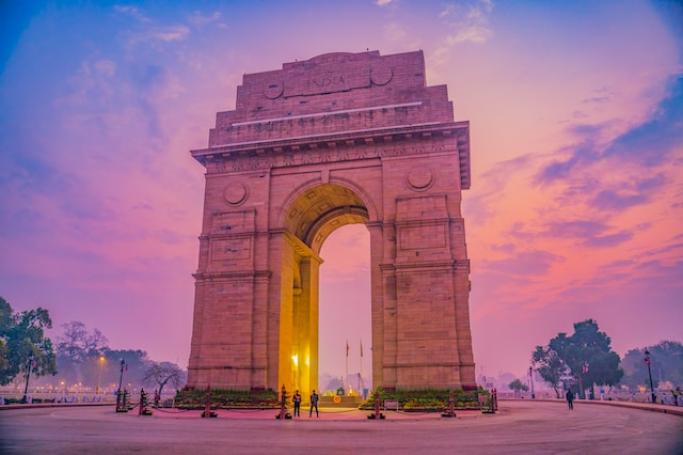Mizzima
Burma Affairs and Conflict Study (BACS) and India for Myanmar (I4M) have issued a joint report analysing India’s approach and relations with Myanmar since the February 2021 coup.
The report titled 30 Months of Myanmar Military Coup, A comprehensive analytical report on India’s approach and relations with Myanmar delineates the relationship between India and the Myanmar junta from February 2021 to July 2023.
The report delves into India's strategic economic and diplomatic stance, shedding light on its support for the junta. Furthermore, it scrutinises how India's approach towards Myanmar has detrimentally impacted the country's democracy movement and, by extension, regional security and India's own security and interests.
The report concludes with a recommendation that India should align with the aspirations of the people of Myanmar rather than blatantly disregarding them.
This report comprehensively covers the multifaceted transformations that have unfolded following the coup, shedding light on the setbacks and their ramifications on the bilateral ties between the two nations.
Both India and the Military Council that emerged from the coup have exercised caution in terms of involvement and interaction in the post-coup scenario. This cautious approach is guided by a shared vision for regional stability, considering their intertwined histories and strategic interests.
Consequently, this report meticulously examines and analyses the dynamic patterns that have shaped the trajectory of India-Myanmar relations during this pivotal period of change.
It provides an in-depth exploration of overarching events, diplomatic strategies, economic implications, and regional effects. The repoort underscore the intricate interplay between these two countries and offers insights into the prospective course of their relationship.
BACS was co-founded by a cohort of young individuals hailing from diverse backgrounds and fields in February 2021. The group is dedicated to the watchful monitoring and meticulous documentation of each action undertaken by the Myanmar Military.
The "India For Myanmar" movement constitutes a grassroots initiative aimed at fostering greater solidarity between the populations of Myanmar and India. This movement is actively advocating throughout India for the severance of ties between the terrorist Myanmar military group and the Indian government.
Key observations from the report are as follows:
India is interacting with the Myanmar Military Council, albeit not with India’s senior or top leaders, but rather at a lower echelon.
Uniquely, after the military coup in Myanmar, the Indian Embassy’s Facebook and Twitter did not post a picture of military leader Min Aung Hlaing at all.
During the tenure of the NLD government, the Prime Minister of India personally established connections at the state level. Nonetheless, subsequent to the military coup, India redirected its involvement towards the Military Council, but only involving India’s foreign secretary as the highest level in routine diplomatic exchanges.
However, the relationship has improved year by year, and in 2023, mutual relations are stronger and more engaged.
An individual holding the position of joint secretary was designated by India to arrange communication efforts. This role primarily focuses on conducting discreet and quiet diplomacy with the NUG and Ethnic Armed Organisations, without engaging in formal diplomatic negotiations. The scope of involvement is limited to matters directly impacting India’s interests.
Despite issuing frequent statements at international forums and conferences such as the United Nations, asserting India's solidarity with the people of Myanmar and expressing concerns regarding the aftermath of the military coup, including advocating for the restoration of democracy and the release of detainees including Daw Aung San Suu Kyi, India refrained from actively participating in action measures against the Myanmar Military Council. India went so far as to state its disinclination towards imposing sanctions, indicating that such actions might adversely impact India's interests, given the extensive border shared between Myanmar and India.
According to India's Act East Policy, Myanmar holds a significant position. It plays a crucial role in the development of Northeastern India and serves as a key for India's strategic economic expansion into the Mekong region. As a result, Myanmar's importance is such that India has to deal with Myanmar for its own advantages.
India is actively promoting projects aligned with its Act East Policy, including initiatives like the Kaladan Multi- Modal Transit Transport Project and the India-Myanmar- Thailand Trilateral Highway Project. Despite efforts to recommence the Kaladan project, which has been underway for over a decade, it has encountered hurdles due to the intense conflict prevailing in the region. The project site falls within an area characterised by intense armed conflicts, leading to a pause in the process.
India is not satisfied with the Myanmar military accepting and using the separatist armed forces of Manipur, but because of other interests, they are sending diplomatic secretaries to negotiate mutual agreements.
The Mizoram state government extended aid in receiving and supporting war refugees from Myanmar. Conversely, the governments of New Delhi and Manipur enforced restrictions and prohibitions on the refugees. Rather than offering assistance, these entities are concerned about the array of problems arising from the inflow of war refugees. As a result, they are focused on gathering and managing biometric data of the refugees as part of their efforts to address the situation.
India is among the top 5 countries supplying military equipment to the Myanmar army, and these military weapons are being used by the Military Council to commit war crimes. Observers say that India is continuing to export weapons until 2023.
India is providing technical support behind-the-scenes to the Military Council's e-ID system and biometric data collection campaigns, which will be used to suppress opposition.
India is adopting a careful approach towards engaging with the Military Council, primarily concentrating on executing their policies concerning the Myanmar situation. Simultaneously, India is also engaging discreetly with the revolutionaries. This approach aims to establish relations with both sides involved in the conflict.












